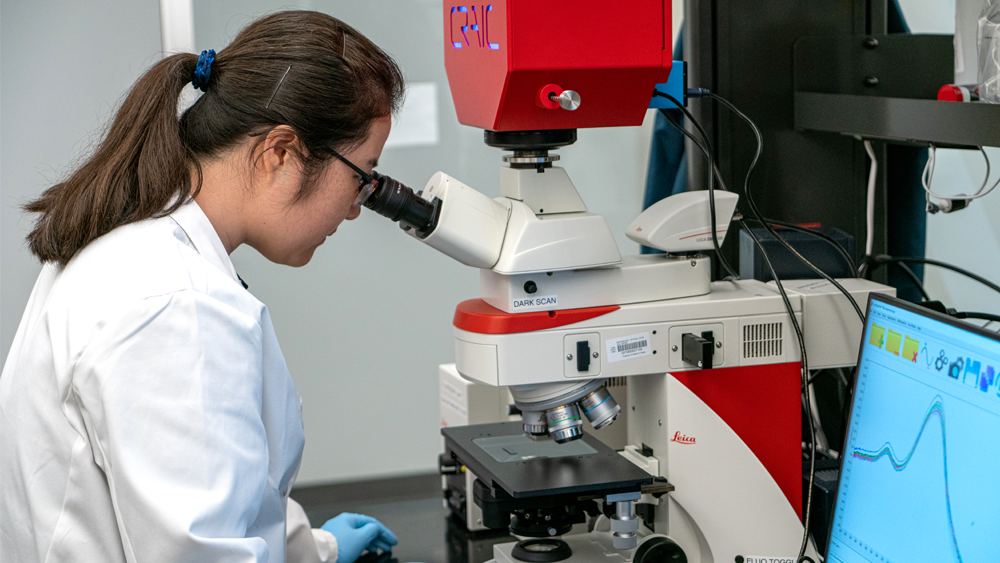
When the COVID-19 pandemic began to inundate the United States in early 2020, many researchers looked at how they could adapt their current work to help fight the pandemic. Dr. Limei Tian, assistant professor in the Department of Biomedical Engineering at Texas A&M University, and her team are developing a novel way to diagnose COVID-19 through a mask.
“We are developing a reliable, noninvasive, point-of-care biosensor that can directly capture and detect SARS-CoV-2 for rapid detection and surveillance of COVID-19,” Tian said.
One of Tian’s research focuses is in organic and inorganic hybrid materials for physical, chemical and biological sensors and multifunctional surfaces and interfaces. As opportunities to research ways to detect and fight COVID-19 started, Tian began to adapt biosensors designed for other disease diagnoses to instead detect COVID-19.
Tian said the goal is to develop a biosensor patch that can be placed into a mask/scarf. As a person exhales, their breath can be captured. The sensor then be easily removed and placed in a hand-held reader for analysis.
“In addition to COVID-19, the platform technology being developed in our lab can be readily adapted for rapidly detecting and monitoring other infectious respiratory diseases.” Tian said.
The team is in the sensor development process. Tian said one challenge has been improving the sensitivity of the biosensors to capture low concentration of biomarkers in the breath.
Tian was recently recognized for her work in biosensors by receiving the Trailblazer R21 Award from the National Institute of Biomedical Imaging and Bioengineering, part of the National Institutes of Health. The award is an opportunity for new and early-stage investigators to pursue research programs that integrate engineering and the physical sciences with the life and behavioral sciences.
Strengths in health care at TEES
The Texas A&M Engineering Experiment Station's health care market segment advances research in the key areas of medicine, health care-related technology and life sciences using a multi-disciplinary approach. Our strengths include bioinformatics, computational biology and systems biology for agricultural, environmental and life sciences, next generation medical devices and systems, and education, training, and outreach programs for pharmaceutical workforce development.
